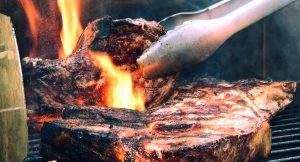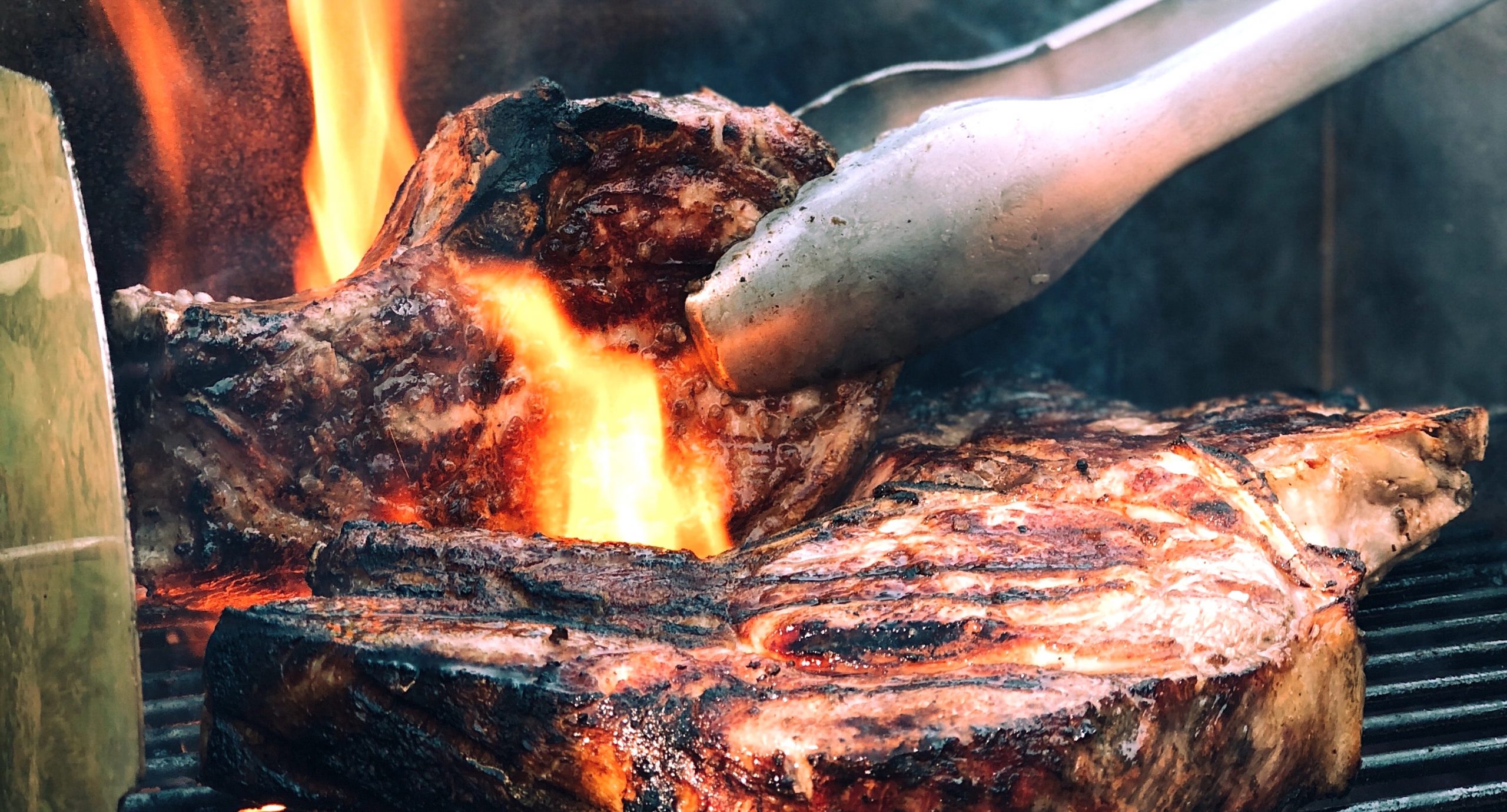
Do not eat it partially roasted or cooked in water. Only roasted over fire, its head, its legs, on its innards. Don’t leave any until morning. Any that is left till morning, you should burn by fire.[2]
There is something not quite right about the korban Pesach. Certainly, Hashem giving us this avodah was hugely important to the Exodus from Egypt. We did not deserve the redemption on our own at the time. Our spiritual level was nothing to be proud of. Hashem heard our cries, saw our tears, and responded out of chesed and compassion. This, however, is not the way that He designed Klal Yisrael to navigate life. He gave us tasks and challenges – mitzvos and aveiros – that would allow us to grow towards Him, and more rightfully deserve the blessings we ask of Him. He wanted that we should be able to ask for the things we need through din, not just through chesed. At the time of the Exodus, our spiritual account was depleted. He gave us an opportunity to deposit some merit in that account through the mitzvos of korban Pesach and milah. But this opportunity to quickly achieve some merit was itself an act of chesed. Did this represent a “change in policy,” so to speak?
The answer is hinted at in the description of the avodah of the korban Pesach. This is what the Torah alludes to in our pesukim:
Today, readying yourselves for the redemption from bondage, you eat the bread of chesed. Don’t get used to it. Things are going to change. From now on, you are going to have to earn your blessings. You won’t eat “na.” (Besides meaning “partially roasted,” the word is also a form of entreaty, or saying “please.”) From now on, the things you need will not be dependent just on saying “please,” and throwing yourselves on Hashem’s mercy. You are going to have to earn things through following Hashem’s Will.
Nor may you eat that which is “cooked in water.” (Water is linked to chesed. In other words, chesed alone will not be the primary platform upon which you stand your requests.) Eat what is “roasted over fire,” i.e. eat what is granted to you through “paying,” as it were, with the currency of mitzvos; entitle yourselves to being sustained by G-d through din, which is linked to fire.
How will you get to this spiritual plane? By keeping “its head, its legs, on its innards.” The head must remain the dominant organ, allowing the sechel to prevail over everything else. It must exert its influence especially by dominating the legs, which are too eager to pursue misadventures like sins of passion. More generally, you must learn that somethings belong on top, and others not so much. The less spiritually accomplished must seek the guidance of Torah greats – not the other way around.
Furthermore, “Don’t leave any until morning.” In performing mitzvos, beware of the tendency (coming from the yetzer hora) to procrastinate, and leave good deeds for the future. Act in the moment, and don’t defer.
Know, however, that there are limited times when you should defer. Anger – even justifiable anger against evil deeds and evildoers – can and should be pushed off. Since anger is almost always mired in imperfect motivation, it must be applied with much caution. Don’t apply anger until you have a chance to slowly determine from where it is coming. Is it sourced in pure and holy motivation? Or is your reaction nudged along by the sitra achra, introducing impure motives?
The Torah therefore urges “Any that is left till morning, you should burn by fire.” Hinted at here is a bit of change of punctuation, as if written, “What is it that should be left till morning – where acting should be delayed until you have had much time to mull things over? That which you believe you should burn by fire. I.e., when you feel what you believe is righteous anger welling up, and you are prepared to act with a fiery zealotry, that is the time to leave things over till your passion can subside in the morning.”
The avodah of the night of Pesach, therefore, was not just a way of securing merit for the slaves waiting for deliverance. It hinted at great themes that would become important to them when they would receive the Torah seven weeks later: securing Divine favor through din, rather than chesed alone; ensuring that the sechel would predominate in its interaction with the emotions; that the lesser should yield to the greater; that procrastination should be avoided in avodas Hashem; and that people should be vigilant about impure motives intruding on the passion to do good.
Will That Be Well Done?[1]
Do not eat it partially roasted or cooked in water. Only roasted over fire, its head, its legs, on its innards. Don’t leave any until morning. Any that is left till morning, you should burn by fire.[2]
There is something not quite right about the korban Pesach. Certainly, Hashem giving us this avodah was hugely important to the Exodus from Egypt. We did not deserve the redemption on our own at the time. Our spiritual level was nothing to be proud of. Hashem heard our cries, saw our tears, and responded out of chesed and compassion. This, however, is not the way that He designed Klal Yisrael to navigate life. He gave us tasks and challenges – mitzvos and aveiros – that would allow us to grow towards Him, and more rightfully deserve the blessings we ask of Him. He wanted that we should be able to ask for the things we need through din, not just through chesed. At the time of the Exodus, our spiritual account was depleted. He gave us an opportunity to deposit some merit in that account through the mitzvos of korban Pesach and milah. But this opportunity to quickly achieve some merit was itself an act of chesed. Did this represent a “change in policy,” so to speak?
The answer is hinted at in the description of the avodah of the korban Pesach. This is what the Torah alludes to in our pesukim:
Today, readying yourselves for the redemption from bondage, you eat the bread of chesed. Don’t get used to it. Things are going to change. From now on, you are going to have to earn your blessings. You won’t eat “na.” (Besides meaning “partially roasted,” the word is also a form of entreaty, or saying “please.”) From now on, the things you need will not be dependent just on saying “please,” and throwing yourselves on Hashem’s mercy. You are going to have to earn things through following Hashem’s Will.
Nor may you eat that which is “cooked in water.” (Water is linked to chesed. In other words, chesed alone will not be the primary platform upon which you stand your requests.) Eat what is “roasted over fire,” i.e. eat what is granted to you through “paying,” as it were, with the currency of mitzvos; entitle yourselves to being sustained by G-d through din, which is linked to fire.
How will you get to this spiritual plane? By keeping “its head, its legs, on its innards.” The head must remain the dominant organ, allowing the sechel to prevail over everything else. It must exert its influence especially by dominating the legs, which are too eager to pursue misadventures like sins of passion. More generally, you must learn that somethings belong on top, and others not so much. The less spiritually accomplished must seek the guidance of Torah greats – not the other way around.
Furthermore, “Don’t leave any until morning.” In performing mitzvos, beware of the tendency (coming from the yetzer hora) to procrastinate, and leave good deeds for the future. Act in the moment, and don’t defer.
Know, however, that there are limited times when you should defer. Anger – even justifiable anger against evil deeds and evildoers – can and should be pushed off. Since anger is almost always mired in imperfect motivation, it must be applied with much caution. Don’t apply anger until you have a chance to slowly determine from where it is coming. Is it sourced in pure and holy motivation? Or is your reaction nudged along by the sitra achra, introducing impure motives?
The Torah therefore urges “Any that is left till morning, you should burn by fire.” Hinted at here is a bit of change of punctuation, as if written, “What is it that should be left till morning – where acting should be delayed until you have had much time to mull things over? That which you believe you should burn by fire. I.e., when you feel what you believe is righteous anger welling up, and you are prepared to act with a fiery zealotry, that is the time to leave things over till your passion can subside in the morning.”
The avodah of the night of Pesach, therefore, was not just a way of securing merit for the slaves waiting for deliverance. It hinted at great themes that would become important to them when they would receive the Torah seven weeks later: securing Divine favor through din, rather than chesed alone; ensuring that the sechel would predominate in its interaction with the emotions; that the lesser should yield to the greater; that procrastination should be avoided in avodas Hashem; and that people should be vigilant about impure motives intruding on the passion to do good.


